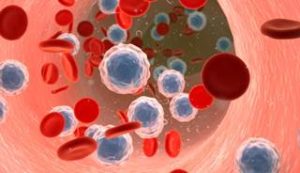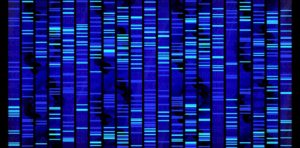
Diagnosed with Cancer? Your two greatest challenges are understanding cancer and understanding possible side effects from chemo and radiation. Knowledge is Power!
Learn about conventional, complementary, and integrative therapies.
Dealing with treatment side effects? Learn about evidence-based therapies to alleviate your symptoms.
Click the orange button to the right to learn more.
- You are here:
- Home »
- Blog »
- Multiple Myeloma »
- Familial Multiple Myeloma Survivor Increases Your Risk of MM
Familial Multiple Myeloma Survivor Increases Your Risk of MM

“The study published online today in Blood offers the first evidence that such familial risks exist across the spectrum of hematologic malignancies (MM).”
Second only to “Why did I get multiple myeloma (MM)?” is the question “Will my child/family/etc. get MM? MM survivors often wonder if their diagnosis will cause another case of MM somewhere in their family. MMers wonder if there is a familial link of any kind. The study linked and excerpted below begins to address that question. But only begins…
The first thing to understand is that the study in question is about the relative risk of MM, not the absolute risk. If the study below documented that 4.1% of all blood cancer diagnoses in a given group of patients had a familial link to a survivor of a blood cancer then the relative increase of getting a blood cancer generally or a diagnosis of MM specifically is small.
The blog post linked in the “recommended reading” section below about WTC first responders and their risks of blood cancers rising as a result of 9/11 documents how environmental factors can, and do, have a much greater impact on a person’s risk of multiple myeloma.
If you think you have an increased genetic risk of multiple myeloma, is there anything you can do? I’m not a geneticist but I know of many evidence-based, non-coventional, non-toxic therapies that reduce a person’s risk of MM.
Or to put it another way, I have no genetic risk for multiple myeloma that I know of. Yet I was diagnosed with it at the age of 34. I’m pretty sure my HPV or benzene exposure increased my risk of MM more than my genetic make-up.
Anti-MM nutrition, anti-MM supplementation, frequent, moderate exercise, to name a few, all are documented to reduce a person’s risk of MM.
And the real pay-off? All of the anti-MM therapies that I’m talking about also reduce your risks of a host of cancers and chronic diseases. Frequent, moderate exercise reduces your risk of just about every disease there is….
If you think you have an increase risk of multiple myeloma and you would like to learn more about evidence-based non-toxic therapies to reduce your risk of this incurable blood cancer, scroll down the page, post a question or comment and I will reply to you ASAP.
Thank you,
David Emerson
- MM Survivor
- MM Cancer Coach
- Director PeopleBeatingCancer
Recommended Reading:
- Multiple Myeloma, Result of the WTC, Side Effects, Options?
- Deep Vein Thrombosis (Blood Clot) and Increased Risk of Cancer
- Multiple Myeloma Patients-Add Organic Protein to Daily Diet
Inherited predisposition to multiple myeloma
“Family pedigree analyses of high-risk families, case-control studies and racial disparities in disease incidence all point to a potential inherited predisposition to MM. Genome-wide association studies (GWASs) have identified susceptibility loci in a number of cancers and such studies are currently underway in MM…
More recently, one report described 39 families with multiple members affected by MM and related disorders (MGUS, Waldenström macroglobulinemia [WM], amyloidosis or cryoglobulinemia) [Lynch et al. 2005], and another detailed 8 African American families with multiple cases of MM or MGUS [Jain et al. 2009]. The patterns of cases in these families do not follow a simple Mendelian pattern, suggesting a more complex genetic basis for the phenotype…
Nevertheless, it is important to remember that with cancer phenotypes there may be an element of ascertainment bias related to heightened awareness of the disease, so the observation of anticipation should be interpreted with caution. To date, over 100 families with multiple affected members with myeloma or other plasma cell dyscrasias have been described and these provide strong evidence for the existence of inherited risk factors for MM…
Having a parent, sibling, or child with blood cancer increases one’s own risk
Data from largest population study to date help identify at-risk individuals, could inform screening initiatives
“New data suggest that people who have a parent, sibling, or child with blood cancer have a higher likelihood of being diagnosed with the disease. The study published online today in Blood offers the first evidence that such familial risks exist across the spectrum of hematologic malignancies.
Age of diagnosis, whether the relative is a parent, sibling, or child, and the number of affected first-degree relatives play a defining role in the relative risk of developing certain blood cancers, according to the study…
“This information improves our understanding of the causes of — and potential inherited predisposition to — blood cancers and should inform the identification and characterization of genetic risk factors for blood cancer, as well as how we best clinically manage patients and their relatives… The results should also encourage conversations among families, clinicians, and patients about familial risk…”
Cases with a familial link represented 4.1 percent of all blood cancer diagnoses — higher than cancers of the nervous system, kidney and pancreas, but lower than those of the breast, colorectum, and prostate, which range from 8 to 15 percent…
The present analysis drew from 16 million people in the Swedish Family-Cancer Database, ultimately including 153,115 patients with a confirmed blood cancer and 391,131 first-degree relatives, which allowed Dr. Sud and colleagues to fully characterize familial risk across all blood cancer types…
In addition to its size and long follow-up, another strength of the analysis is its use of registry data for which almost all blood cancer cases in the Swedish population had been recorded…”



